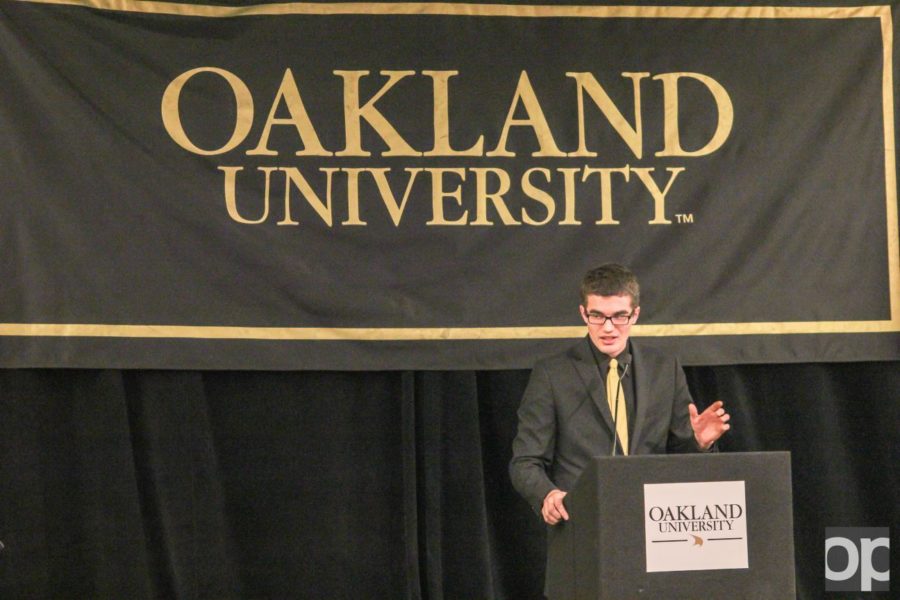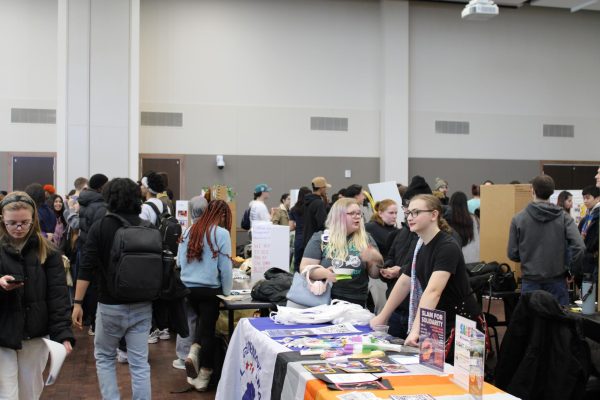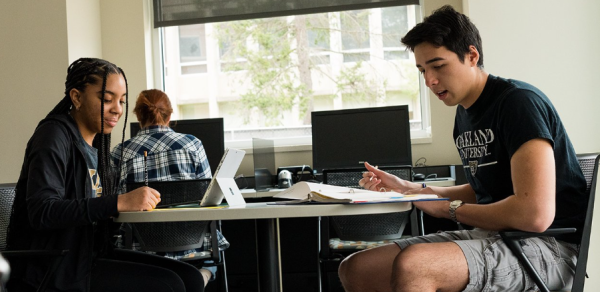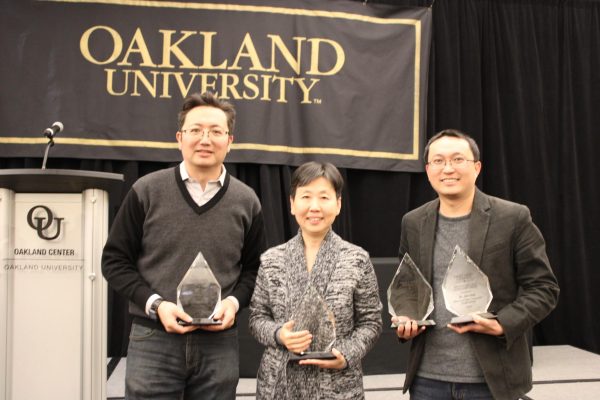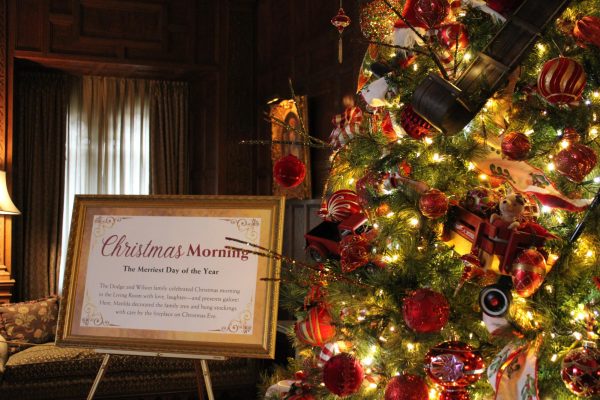state of the university address
Four accomplishments and one take-away: state of the university
Oakland University Student Council president gives first state of the university address
Nicholas Walter, Oakland University Student Congress president, gave Oakland University’s first State of the University Address on Monday, March 21 in the Banquet Rooms.
After an introduction given by Glenn McIntosh, vice president for student affairs, and OU President George Hynd, Walter talked about what his administration accomplished – the “Big Four” – and advised members of the OU community to be open and accepting.
More Outlets
While it’s too expensive to add outlets to existing buildings, the Oakland Center gained some with the new food court. More are included in designs for the new OC.
More Swag
Students could bring gear from other universities and trade it in for OU swag.
More Space
The OC was originally designed to accommodate a campus of 10,000 students. Students have been pushing for a new OC for about five years now, and the student population has grown to more than 21,000. The board of trustees approved a plan to build a new OC during Walter’s administration. OU’s community depends on the OC because so many students commute.
More 4.0s
OU’s grading scale makes it incredibly difficult to get a 4.0 – often a 95 percent average in a class translates to a 3.6, Walter said. OU is re-working the grading scale so grades are more accurately translated on transcripts.
Open debate: the lifeblood of a university
Walter said he noticed an attitude of intolerance of opinions on college campuses and called on the OU community to avoid it.
At the University of Missouri, a professor stopped a student journalist from taping a protest and had the student kicked out of the area.
In England, a graduate student was expelled for posting a peaceful political opinion on Facebook.
University of Purdue professor disagreed with a Pro-Life group and said he wanted to rape its members and their family members. He also made other threats of violence.
Finally, here at OU, Walter wrote a legal analysis of the law that was published in the Post. A student group disagreed with him and members came before OUSC saying that high school students wouldn’t come to OU because of the article, college students were dropping out and said Walter had compared the group to Nazis or the Ku Klux Klan. None of this was true.
Walter said that this culture of intolerance isn’t prevalent at OU, but the campus community must watch out for it and fight against it.
“You will decide what Oakland looks like in the next five, 10, 20, 50 years,” he said. “You will set the tone. The power is in your hands. And I beg of you, keep Oakland open. Keep it open-minded. Keep it free.”



